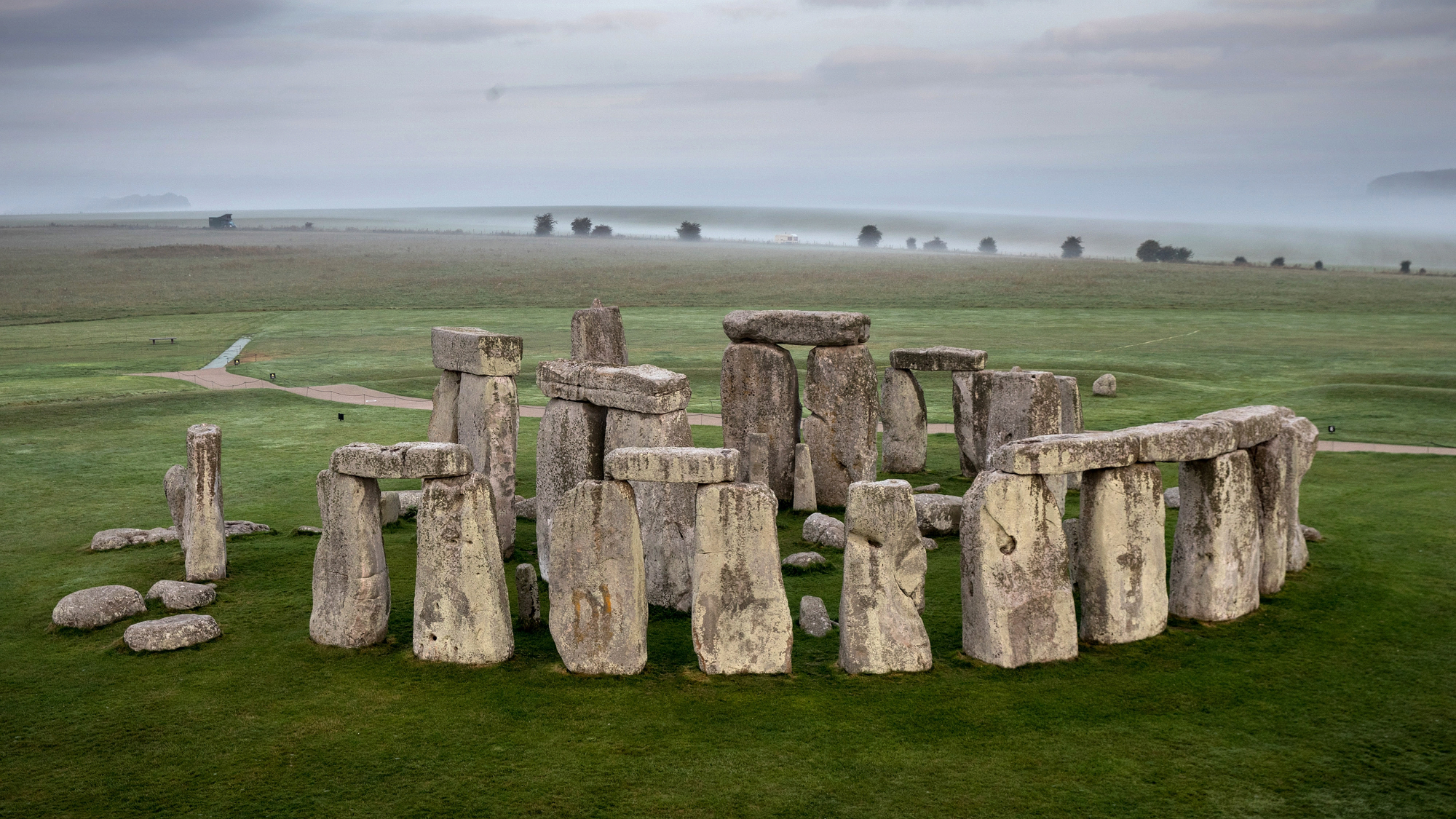Stonehenge Altar Stone came from Scotland, study finds
New analysis says the six-ton megalith actually came from Scotland and not Wales, as previously thought


A free daily email with the biggest news stories of the day – and the best features from TheWeek.com
You are now subscribed
Your newsletter sign-up was successful
What happened
The Altar Stone at the center of Stonehenge, long believed to have been hauled to southwest England from Wales, was actually transported more than 450 miles from northeastern Scotland, a team of geologists reported in the journal Nature.
Archaeologists believe the six-ton sandstone megalith was "installed at Stonehenge during the second construction phase, around 2620 B.C. to 2480 B.C.," The New York Times said.
Who said what
The researchers, led by Welsh doctoral student Anthony Clarke at Australia's Curtin University, examined two slivers of the Altar Stone and determined it came from Scotland's Orcadian Basin. So it was either "dragged 500 miles or more overland by our Neolithic forebears, before the invention of the wheel," The Washington Post said, or it was "ferried via sea by Stone Age mariners," the theory favored by the researchers.
The discovery suggests that "Neolithic Britain was a far more connected and advanced society than earlier evidence indicated," the BBC said. With stones from England, Scotland and Wales, Clarke said, "Stonehenge seems to be this great British endeavor involving all the different people from all over the island."
The Week
Escape your echo chamber. Get the facts behind the news, plus analysis from multiple perspectives.

Sign up for The Week's Free Newsletters
From our morning news briefing to a weekly Good News Newsletter, get the best of The Week delivered directly to your inbox.
From our morning news briefing to a weekly Good News Newsletter, get the best of The Week delivered directly to your inbox.
What next?
This "genuinely shocking" discovery will prompt archaeologists to dig into how the stone was moved "and, more intriguing, why," Robert Ixer, a University College London mineralogist who collaborated on the project, said to the BBC. At this point, "your guess is about as good as theirs," the Post said, "which is why Stonehenge remains 'a wonder of the world.'"
A free daily email with the biggest news stories of the day – and the best features from TheWeek.com
Peter has worked as a news and culture writer and editor at The Week since the site's launch in 2008. He covers politics, world affairs, religion and cultural currents. His journalism career began as a copy editor at a financial newswire and has included editorial positions at The New York Times Magazine, Facts on File, and Oregon State University.
